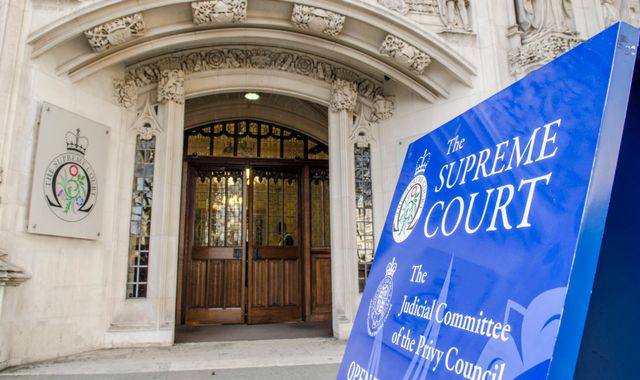Supreme Court to rule on legality of proroguing parliament
Written by News on 24/09/2019
The Supreme Court will today decide if Boris Johnson’s decision to suspend parliament until 14 October was unlawful.


Speaking to journalists as he headed for the UN climate action summit conference in New York, the prime minister refused to rule out resigning if the court found against him.
A panel of 11 justices heard appeals over three days arising out of separate legal challenges in England and Scotland.
Leading judges reached different conclusions in those earlier cases. Here are 10 things worth knowing about the Supreme Court case.
1. This is a unique case. It is a real test of our unwritten constitution, examining in precise detail the scope of parliament’s sovereignty and the balance of power between parliament, government and the courts: a forensic scrutiny of who answers to who.
2. The 11 Supreme Court justices have two questions to consider: is it within their powers to intervene in a dispute about the prorogation of parliament? And if the answer is yes, has Boris Johnson acted unlawfully?
3. Those against proroguing say the five-week suspension is unlawful because it prevents parliament from being able to scrutinise government – particularly regarding Brexit. They say it is politically motivated, and intended purely to prevent MPs from interfering with the prime minister’s plans.
4. Lord Pannick QC, acting for Gina Miller against the government, said the suspension was for a period of “exceptional length”, for “no rational reason” and had come at a “vital time”. And these are the circumstances under which the justices must decide whether the PM’s decision was lawful.
5. The government argues that this is political matter and “forbidden territory” for the courts. It also says there are no judicial standards – that is no rules about proroguing – and so again this is not something the courts can get involved with. At any rate, they argue that MPs could always have moved a motion of no confidence.
6. We have witnessed a former Conservative prime minister fighting the current one. Sir John Major’s lawyers compared Boris Johnson to a dodgy estate agent acting dishonestly with homeowners. Lord Garnier, on behalf of Sir John, believes that if the courts cannot step in, then what is to stop a prime minister using the power of prorogation in any circumstance and for any reason.
7. The most emotional language came from Aiden O’Neill QC, acting on behalf of, among others, SNP MP Joanna Cherry. Within minutes he had referenced Braveheart, Macbeth and Kipling, to name but a few. He successfully argued his case in the Scottish courts last week. He told the Supreme Court: “The mother of all parliaments is being shut down by the father of all lies.”
8. Don’t mention Brexit. At least not in front of the Supreme Court justices. Ronan Lavery QC, acting on behalf of a campaigner from Northern Ireland, received a supreme slapdown when he strayed into Brexit argument. He was sharply told: “Don’t abuse our politeness, and don’t abuse Lady Hale’s (Supreme Court president) patience.” Repeated reminders were made in the three-day hearing that the case was not about how and when Brexit happens.
9. The justices will deliberate over the weekend, and said they intended to rule on the case as soon as possible. There was talk at the end of day three about potential remedies: put simply, what might happen next, which did not sound like things were going the government’s way.
10. What happens next? The justices could rule that this is not an issue they can get involved with. But if they don’t, parliament could be recalled immediately, the PM could carry on regardless, or he could try to prorogue parliament again. Either way, we are entering uncharted territory that will certainly challenge the very heart of our constitution.
(c) Sky News 2019: Supreme Court to rule on legality of proroguing parliament







